“After we kill off the pure enemies of a pest. We inherit their work.” – C.B. Huffaker
Attracting or importing useful bugs — “the nice bugs” — into your yard or backyard is a good way to cut back the variety of detrimental insect pests with out having to resort to poisonous pesticides or pesticides.
There are 4 classes of useful bugs:
Predators are usually bigger than their prey and eat many pest bugs all through their lifetime. They’re usually thought of normal feeders, which signifies that they eat a wide range of insect species. Sadly, some predators, just like the voracious praying mantis, will eat absolutely anything in its path, together with different useful bugs. Each immature and grownup predatory bugs eat backyard pests and a few feed on pollen and nectar at varied phases of their life-cycle. (The image right here reveals a ladybug larvae feeding on aphids.)
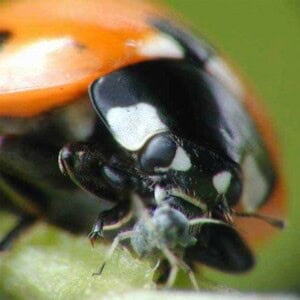
FREE SHIPPING!
Ladybugs
This native ladybug species is the perfect identified backyard predator obtainable.
Study extra
Bought bugs? At Planet Pure we provide a big collection of natural pest management options which are assured SAFE and efficient. From useful bugs to botanical sprays, we solely carry the perfect. Additionally, go to our Pest Drawback Solver for pest footage, descriptions and an entire record of earth-friendly treatments.
Parasites, however, lay their eggs on or inside a bunch insect or egg. When their eggs hatch, the younger larvae eat the host, finally killing it. Parasitic bugs are normally a lot smaller than their host and are typically extra insect particular than the predators. Nonetheless, this isn’t all the time the case. The tiny trichogramma (wingspan: 1/fiftieth of an inch), is a parasitic wasp that assaults the eggs of not less than 200 totally different moth and butterfly species stopping the leaf-eating caterpillar from rising (suppose cabbage loopers and corn earworms).
Pollinators assist maintain plant species rising and producing yr after yr. As a lot as 80% of the world’s flowering crops require pollination to provide fruits and seeds — together with two thirds of all meals crops. Honey bees, butterflies, beetles, flies, and wasps are all well-known pollinators. A lesser identified useful insect, the hoverfly, not solely pollinates crops in its grownup stage, however feeds on smooth bodied pests, like aphids, in its larval stage.
Tip: Use short-lived, natural sprays solely as a final resort to cut back the danger of harming pollinating bugs. In the event that they’re gone, all your greatest efforts spent fertilizing, pruning, watering and weeding can be wasted. Encourage or import pollinators every time doable.
Decomposers are important for breaking down backyard waste and enriching the soil by releasing vitamins right into a kind that’s usable by crops. They embody a various group of soil-dwelling and wood-boring bugs and are largely accountable for creating the wealthy, darkish natural layer of soil (humus) that blankets a portion of the earth. With out these bugs we might be “neck-deep” in excrement and lifeless plant and animal tissue. (Three cheers for the decomposers!).
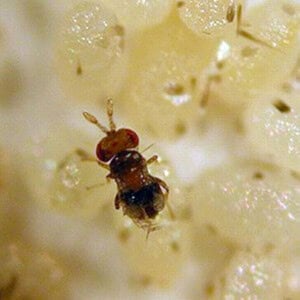
FREE SHIPPING!
Trichogramma Wasps
This small parasitic wasp — 1/fiftieth inch — assaults the eggs of leaf consuming caterpillars.
Study extra
Regardless of its small dimension — 1mm or much less — the Trichogramma Wasp is an environment friendly destroyer of the eggs of greater than 200 species of moths and butterflies that are leaf-eaters of their caterpillar stage. Examples of such backyard pests embody corn earworm, cutworm, cabbage looper, armyworm, borers and codling moth caterpillar. Very efficient as a result of it kills these pests earlier than they enter the plant-consuming larval stage.
There are two methods to get predatory and parasitic bugs into the backyard. They will both be lured naturally (see Attracting Beneficials), or imported — purchased and launched into the backyard. However earlier than you head out to buy a bunch of “good bugs,” give you a game-plan on your yard.
Built-in Pest Administration
An effective way to formulate a plan and take care of undesirable pests is to make use of a pest administration technique generally known as Built-in Pest Administration (IPM). This frequent sense strategy to pest management makes use of a variety of environmentally pleasant methods to maintain pest numbers low and below management. Therapies are timed to have probably the most impression in opposition to the pest and trigger the least quantity of hurt to its pure enemies.
Begin off by monitoring for pests every day if you water. Don’t neglect to look on the underside of leaves — it’s a terrific hideout for hungry bugs and their eggs. By checking your crops steadily you’ll be capable to discover pests whereas they’re nonetheless younger and never fairly so quite a few.
Subsequent, work out what pest you might be coping with. For those who aren’t positive, ask your native extension service. It additionally helps to know a bit one thing concerning the pests life-cycle in order that management strategies might be chosen and administered when they are going to be handiest.
Determine how a lot harm you might be keen to take care of. The concept is to regulate the pest, not eradicate it. Can you reside with just a few holes within the leaves of your broccoli? How do you’re feeling about chewed up tomatoes?
If it’s worthwhile to take motion use natural pest management strategies which are least dangerous to you, your crops, and the atmosphere. That is the place the beneficials are available to play.
Under is an inventory of a number of predators/parasites and the pest species they management.
| Helpful Species | Pests Managed | Launch Directions |
| Aphid Midge (Aphidoletes aphidimyza) |
Aphids | Launch 2 to five per 10 sq. toes. Repeat weekly for not less than three weeks. Excellent for greenhouse use. |
| Aphid Parasite (Aphidius colemani) |
Aphids | Launch 2 to five per 10 sq. toes, relying on pest degree. Repeat weekly for no less than thrice. |
| Bumble Bee (Bombus impatiens) |
Crop Pollination | A hive of 40 to 60 employee bees will cowl as much as 5,000 sq. toes. |
| Fly Parasite (Muscidifurax zaraptor, Spangliaspp.) |
Filth Flies | For greatest outcomes, begin releases early, earlier than flies turn into an issue. Launch 500 parasites per giant animal (cow, horse) and 250 parasites per medium sized animal (goat, sheep). For manure and compost piles use 5 parasites per cubic foot. |
| Fungus Gnat Predator (Stratiolaelaps scimitus) |
Sciarid fly and fungus gnat larva in addition to different soil dwelling bugs | Apply 25,000 predators per 2,500 to five,000 sq. toes, relying on pest ranges. |
| Inexperienced Lacewing (Chrysoperla rufilabris) |
Normal predator of many soft-bodied pests and their eggs, together with aphids and spider mites. | Use 1,000 lacewing eggs per 1,200 sq. toes. A second launch two weeks later, could also be mandatory. |
| Ladybug (Hippodamia convergens) |
Normal predator of aphids and different soft-bodied pests, mites and eggs. | Launch 2,000 per 1500 sq. toes when pest ranges are low to medium. |
| Leafminer Parasite (Diglyphus isaea) |
Assaults leafminer larva within the mine | Launch 500 to 1,000 parasites per 44,000 sq. toes. Repeat each different week for as much as 3 weeks. |
| Mealybug Destroyer (Cryptolaemus montrouzieri) |
Used in opposition to all species of mealybugs and can feed on smooth scale and aphids, if mandatory. | Apply 2 to five per plant (0.5 per sq. foot) relying on degree of pest infestation. Most energetic at temperatures 70° F, or greater. |
| Minute Pirate Bug (Orius spp.) |
A normal predator of many soft-bodied pests, together with thrips, small caterpillars, leafhoppers, scale, spider mites and aphids. | Use 5 to 10 per sq. foot of rising house. Greatest outcomes are achieved when launched within the late afternoon or early morning. |
| Praying Mantis (Tenodera aridifolia sinensis) |
A normal predator, it assaults nearly any insect in its means, together with different beneficials. | Use 3 egg circumstances for areas lower than 5,000 sq. toes — enhance this quantity for bigger rising areas. |
| Predatory Mite (Phytoseiulus persimilis) |
Two Noticed Spider Mites | Launch 1,000 predators per 350 sq. toes or 1 to 2 per infested plant leaf. A second launch needs to be made one week later, if pest ranges are excessive. |
| Spined Soldier Bug (Podisus maculiventris) |
Assaults greater than 100 totally different insect pests, together with flea beetles, cabbage loopers, corn earworms and Colorado potato beetles. | Apply 5 to 10 Soldier Bugs per plant, relying on pest numbers. Reapply if pest numbers are excessive. |
| Thrips Predator (Amblyseius cucumeris) |
Consumes thrips, in addition to mites, honeydew and pollen. | Launch 25,000 predators per 1,000 sq. toes. Repeat each few weeks, if mandatory. |
| Trichogramma Wasp (brassicae,minutum,pretiosum spp.) |
Seeks out and destroys the eggs of over 200 moth and butterfly species which are leaf eaters of their caterpillar stage. | Launch 5,000 parasites per 5,000 sq. toes. Make releases weekly for 3 to six weeks. |
| Whitefly Parasite (Encarsia formosa) |
Greenhouse Whitefly | Apply 2 to 4 parasites per sq. foot of infested space. Greatest outcomes are achieved when temperatures exceed 70° Fahrenheit. |
Sustaining Good Insect Habitat
Whether or not you select to draw or import useful organisms, you’ll want to offer a gorgeous house for them to dwell, or they gained’t stick round. There are a number of methods to keep up useful bugs.
Select crops that present loads of meals. Generally, bugs will eat pollen and nectar from crops with small flowers. Engaging annuals and perennials might be sown all through vegetable rows or planted as a border across the backyard (see our Helpful Insect Seed Combine). Ensure there are each early and late bloomers in your seed combine so the bugs have sufficient meals when pests are much less prevalent. Alyssum and pansies are early bloomers whereas goldenrod, sedum, and asters bloom later within the season.
For an inventory of insectary crops that may assist appeal to particular useful bugs try the desk under.
| Insectary Plant(s) | Helpful Species Attracted |
| Black Eyed Susan | Parasitic Wasps, Honey Bees, Hover Flies |
| Candytuft | Syrphid Flies, Hover Flies, Honey Bees, Floor Beetles |
| Caraway | Parasitic Wasps, Lacewing, Hover Flies, Massive-Eyed Bugs |
| Clover | Tachinid Flies, Parasitic Wasps, , Floor Beetles, Massive-Eyed Bugs, Hover Flies, Ladybugs, Honey Bees |
| Coreopsis | Floor Beetles, Syrphid Flies, Lacewing |
| Cosmos | Lacewing, Hover Flies, Parasitic Wasps, Massive-Eyed Bugs |
| Dill | Ladybugs, Lacewing, Hover Flies, Parasitic Wasps |
| Dwarf Morning Glory | Ladybugs, Hover Flies |
| Night Primrose | Floor Beetles, Honey Bees |
| Fennel | Parasitic Wasps, Hover Flies, Tachinid Flies, Damsel Bugs, Ladybugs, Lacewing, Massive-Eyed Bugs |
| Lavender | Hover Flies, Parasitic Wasps, Honey Bees |
| Lemon Balm | Hover Flies, Parasitic Wasps, Honey Bees, Tachinid Flies |
| Parsley | Tachinid Flies, Parasitic Wasps, Hover Flies |
| Queen Anne’s Lace | Minute Pirate Bugs, Hover Flies, Ladybugs, Lacewing, Parasitic Wasps, Tachinid Flies |
| Sunflower | Ladybugs, Syrphid Flies, Parasitic Wasps, Spined Soldier Bugs, Minute Pirate Bugs |
| Candy Alyssum | Parasitic Wasps, Hover Flies, Aphid Predators, Tachinid Flies, Floor Beetles |
| Tansy | Lacewing, Ladybugs, Parasitic Wasps, Tachinid Flies |
| Yarrow | Ladybugs, Lacewing, Hover Flies, Parasitic Wasps, Honey Bees |
By enhancing the range of crops in your yard you possibly can guarantee your panorama is just not solely extra enticing, but additionally meets a wide range of useful insect wants. Together with crops of various heights might be very useful. Low rising crops, corresponding to mint, clover and thyme, act as a shelter for floor beetles, whereas fruit bushes and plenty of flowering shrubs create a secure habitat for parasitic wasps and different flying bugs. Leaf litter, mulch, and floor particles gives safety from birds in addition to providing shelter from the weather.
Present water. A shallow birdbath or dish full of small stones will provide loads of water for tiny beneficials. Bugs can even drink from the moist leaves and puddles created by overhead sprinklers.
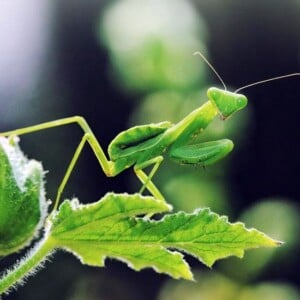
FREE SHIPPING!
Praying Mantis
Shipped as egg circumstances, praying mantis require a number of weeks of heat temps to hatch.
Study extra
A voracious predator, the Praying Mantis (shipped as egg circumstances) will get its identify from its two thick, entrance legs lined with spikes for greedy prey. It’s fast to strike and can eat nearly any insect, dangerous and good, together with caterpillars, grasshoppers, crickets, wasps and bees.
Keep away from chemical use. Pesticides and pesticides will kill the bugs you need to encourage in addition to those you’d wish to see disappear (see Are Pests the Drawback or Pesticides?). For those who should spray, choose pure pesticides which are particular to the goal pest. For instance, Bacillus thuringiensis will management leaf-eating caterpillars, corresponding to cabbage worms, gypsy moths, and hornworms with out harming their pure enemies.
Observe: Botanical pesticides (derived from crops), corresponding to pyrethrum and neem oil will hurt all bugs they arrive in touch with and will solely be used in spite of everything different natural pest management strategies have been exhausted. They do, nevertheless, break down extra shortly within the atmosphere than chemical pesticides, and in consequence, have fewer dangerous unwanted side effects.
Correct timing. You’ll want to correctly time the discharge of organic controls. Parasites with one particular host will must be launched when that host is out there, simply as prey-specific predators will want their meals supply round to dine on. Additionally, if pest ranges are excessive chances are you’ll must knock down their numbers with a robust stream of water or quick lived natural insecticide, corresponding to insecticidal cleaning soap, to ascertain management, then launch pure enemies to keep up management.
When buying predatory or parasitic bugs, ensure that to get all the discharge info it’s worthwhile to present the perfect scenario on your new backyard allies.
Challenges with Utilizing Helpful Bugs
There are just a few issues that may come up with utilizing useful organisms. Some are normal feeders and can eat different beneficials together with pests. Attempt to be particular concerning the pure enemies you import and search for prey-specific feeders, if doable.
One other side of utilizing organic management and pure enemies to regulate pests that may frustrate some growers is that they don’t seem to be a fast repair. It could take as much as 5 weeks to note a decline in pest bugs, however bear in mind, it is a long-term resolution that may finally result in more healthy crops and a more healthy ecosystem.
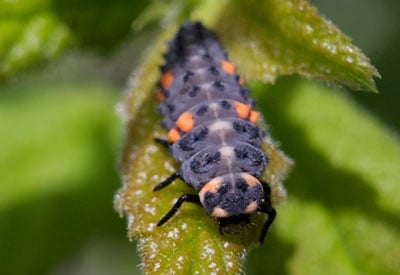
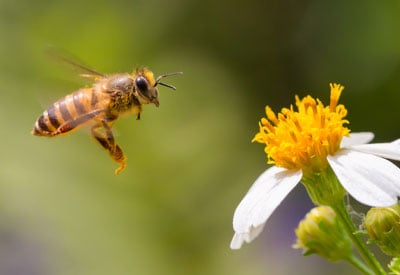
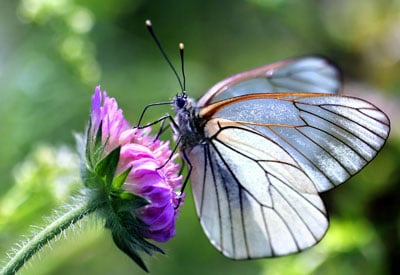
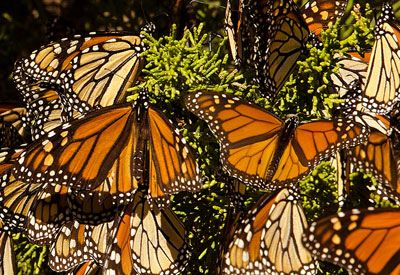

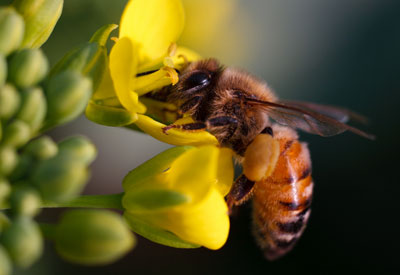
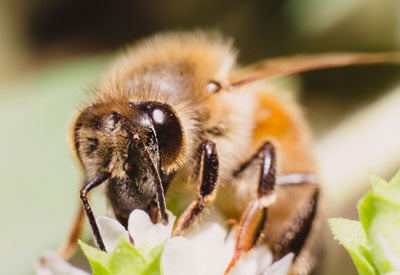

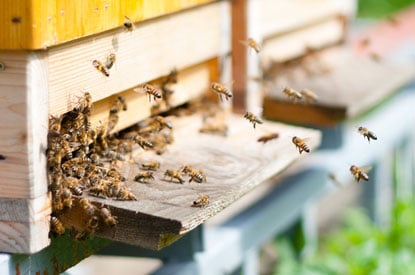
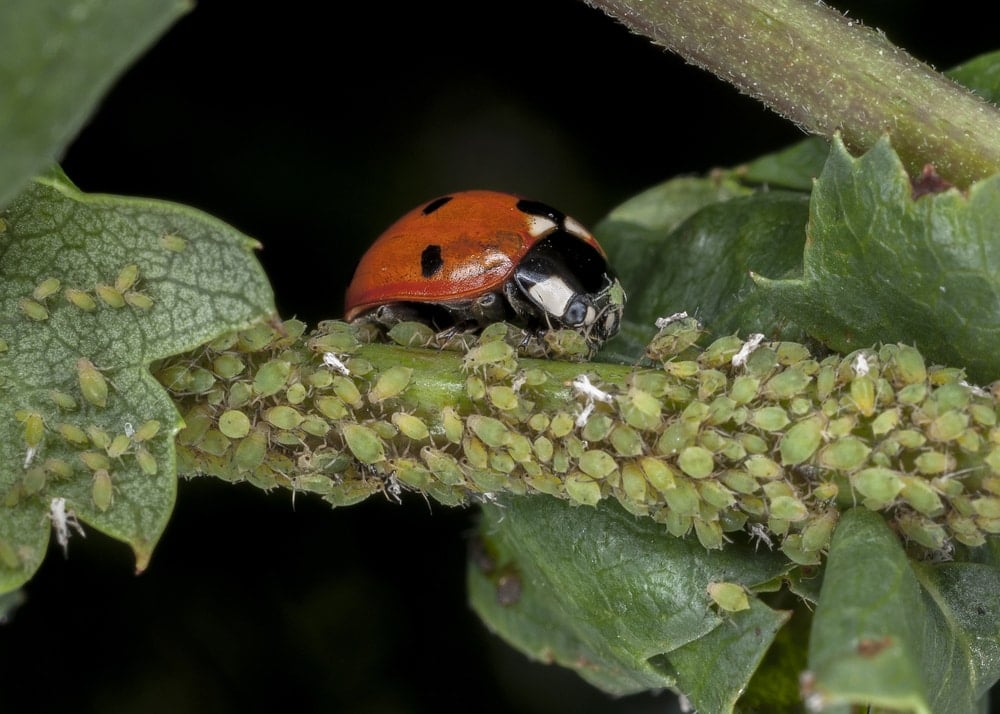
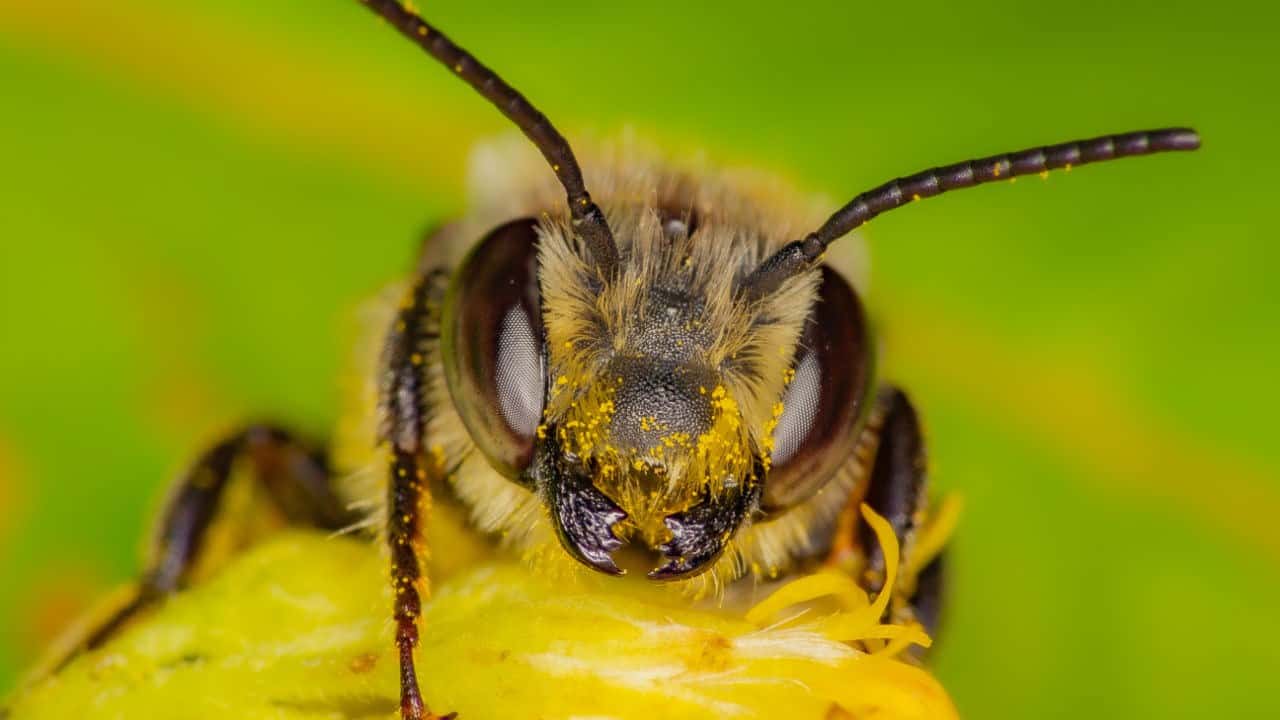
Leave a Reply